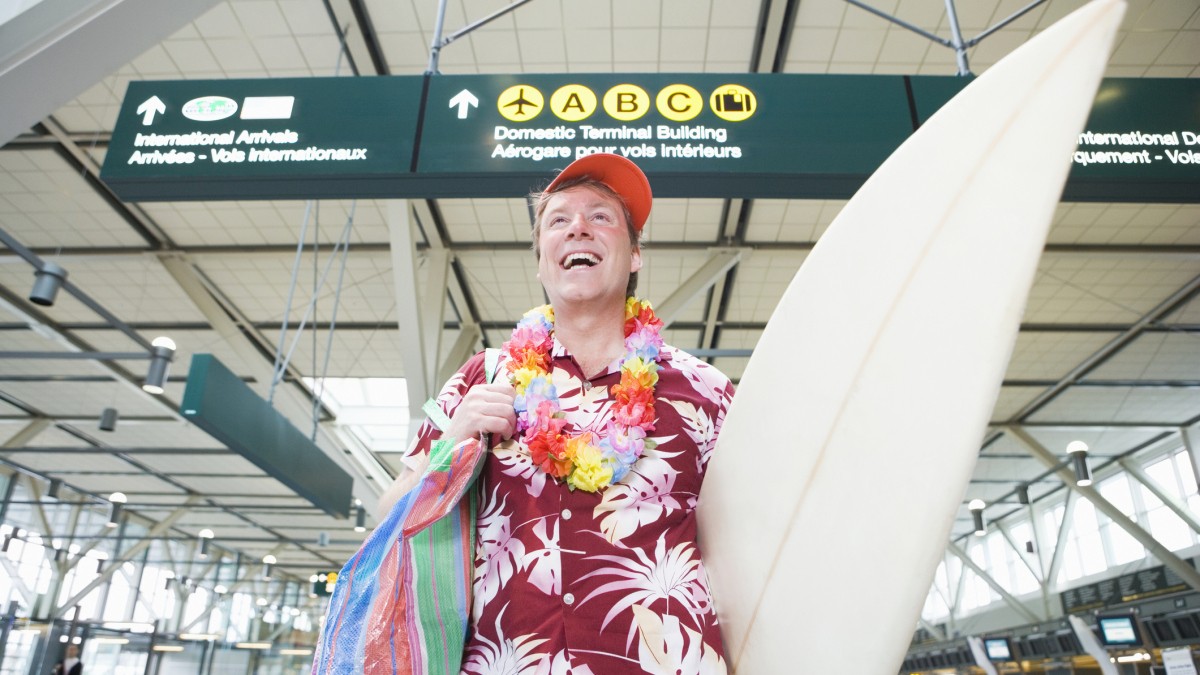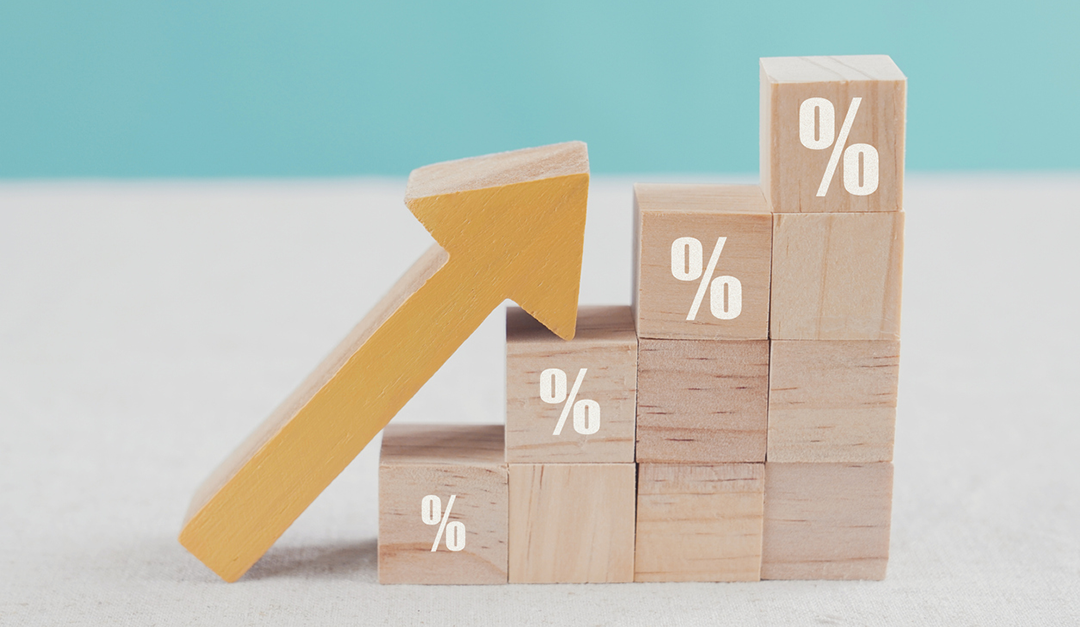The End Of Revenge Travel? Analyzing The Impact Of Fear And Uncertainty On American Tourists

Table of Contents
The Lingering Effects of Fear and Uncertainty on Travel Decisions
The thrill of revenge travel is undeniably fading for many Americans, replaced by a more cautious approach. Several factors contribute to this shift, significantly impacting travel decisions and the overall tourism industry. Travel anxiety is now a tangible concern, influencing where and how people choose to travel.
-
Increased concern about health risks: The emergence of new COVID-19 variants and other global health concerns continues to fuel apprehension about travel, particularly international trips. The fear of contracting illness while abroad, or the disruption of travel plans due to unexpected outbreaks, is a major deterrent.
-
Economic instability impacting disposable income: Inflation and economic uncertainty have significantly impacted disposable income, causing many Americans to reconsider or reduce their travel budgets. The cost of flights, accommodation, and activities is a primary factor influencing vacation planning.
-
Fear of flight cancellations and travel disruptions: The lingering effects of pandemic-related disruptions, coupled with ongoing airline challenges, have heightened concerns about flight cancellations, baggage loss, and unexpected travel delays. This uncertainty adds stress and reduces the appeal of spontaneous travel.
-
Anxiety related to navigating new travel regulations and restrictions: Varying entry requirements, testing protocols, and ever-changing regulations across different countries create considerable anxiety for travelers. Navigating these complexities can be daunting, discouraging many from venturing abroad.
-
Hesitancy to travel internationally due to geopolitical instability: Geopolitical tensions and international conflicts add another layer of uncertainty to international travel. Safety concerns in certain regions are prompting many Americans to opt for more stable and familiar destinations.
These fears manifest in several ways: increased purchases of travel insurance to mitigate potential losses, a strong preference for domestic travel over international trips, and a general hesitancy to book far in advance. The desire to travel remains, but the approach is becoming noticeably more cautious.
Shifting Travel Preferences: From "Revenge" to "Responsible" Travel?
The post-pandemic travel landscape is not simply about less travel; it's about a different kind of travel. The emphasis has shifted from impulsive "revenge travel" to a more conscious and responsible approach.
-
A rise in interest in sustainable and responsible tourism: Many American tourists are now prioritizing sustainable and eco-friendly travel options, seeking out businesses committed to minimizing their environmental impact. This includes choosing eco-lodges, supporting local communities, and reducing their carbon footprint.
-
Increased focus on domestic travel: Domestic tourism is booming as Americans opt for closer-to-home destinations due to cost-effectiveness, convenience, and reduced travel time. This resurgence of domestic travel benefits local economies and reduces the environmental impact associated with long-distance flights.
-
A shift towards "slow travel": Instead of fast-paced itineraries packed with multiple destinations, many travelers now favor "slow travel"—longer trips focused on fewer locations, allowing for deeper immersion in local culture and a more relaxed pace.
-
Budget-conscious travel choices: Economic concerns are driving a greater emphasis on budget-friendly travel options, with travelers opting for more affordable accommodations, seeking out free activities, and prioritizing value for money.
-
Emphasis on flexibility and trip insurance: Unpredictable circumstances are leading travelers to prioritize flexible booking policies and comprehensive travel insurance to protect their investments and minimize potential disruptions.
This transition to "responsible travel" reflects a broader shift in values, with travelers placing greater emphasis on meaningful experiences, personal well-being, and environmental consciousness.
The Role of the Travel Industry in Addressing Fear and Uncertainty
The travel industry has a crucial role to play in rebuilding traveler confidence and adapting to the evolving landscape. Addressing consumer anxieties is paramount for the industry's recovery and future success.
-
Transparent communication regarding health and safety protocols: Clear and consistent communication about health and safety measures implemented by airlines, hotels, and tour operators is essential in reducing anxiety and building trust. Transparency about cleaning protocols, vaccination policies, and any potential risks is key.
-
Flexible booking policies and cancellation options: Offering flexible booking policies and generous cancellation options helps alleviate the fear of unexpected disruptions and financial losses, encouraging travelers to book with greater confidence.
-
The growing demand for comprehensive travel insurance policies: Travel insurance is becoming increasingly vital, offering protection against unforeseen circumstances like medical emergencies, flight cancellations, and travel disruptions. The industry is responding with a wider range of more comprehensive policies.
-
Investment in enhanced safety measures: Airlines and accommodations are investing in enhanced safety measures, including improved air filtration systems, contactless check-in procedures, and rigorous cleaning protocols, to reassure travelers and create a safer environment.
-
Improved customer service: Providing exceptional customer service, readily addressing concerns, and offering proactive support are critical in fostering trust and positive travel experiences.
By proactively addressing these concerns, the travel industry can regain consumer confidence and contribute to a more positive and sustainable travel future.
Conclusion
While the initial wave of "revenge travel" is undoubtedly receding, the fundamental human desire to travel remains strong. However, fear and uncertainty continue to significantly influence American tourists' decisions. This has led to a fascinating shift, with a move toward more responsible, budget-conscious, and domestically focused travel styles. The industry's response, characterized by increased transparency, flexible booking options, and a focus on safety, is crucial in navigating this new era.
Are you ready to plan your next trip, prioritizing safety and mindful exploration? Start researching your options for responsible and budget-friendly travel today, and reclaim the joy of exploration responsibly! Embrace the new era of travel beyond "revenge travel," focusing on sustainable practices and mindful planning for a fulfilling and worry-free experience.

Featured Posts
-
 Put Ukrainy V Nato Germaniya Podtverzhdaet Svoyu Podderzhku
May 27, 2025
Put Ukrainy V Nato Germaniya Podtverzhdaet Svoyu Podderzhku
May 27, 2025 -
 Taylor Swifts Reputation Taylors Version Teaser Release Date And Expectations
May 27, 2025
Taylor Swifts Reputation Taylors Version Teaser Release Date And Expectations
May 27, 2025 -
 Podcast Low Inflation A Temporary Opportunity
May 27, 2025
Podcast Low Inflation A Temporary Opportunity
May 27, 2025 -
 Trump Etkisi Avrupa Merkez Bankasi Nin Tepkileri Ve Stratejileri
May 27, 2025
Trump Etkisi Avrupa Merkez Bankasi Nin Tepkileri Ve Stratejileri
May 27, 2025 -
 Rastuschaya Podderzhka Germaniya Predostavit Ukraine Bolee E11 Mlrd Na Oboronu
May 27, 2025
Rastuschaya Podderzhka Germaniya Predostavit Ukraine Bolee E11 Mlrd Na Oboronu
May 27, 2025
